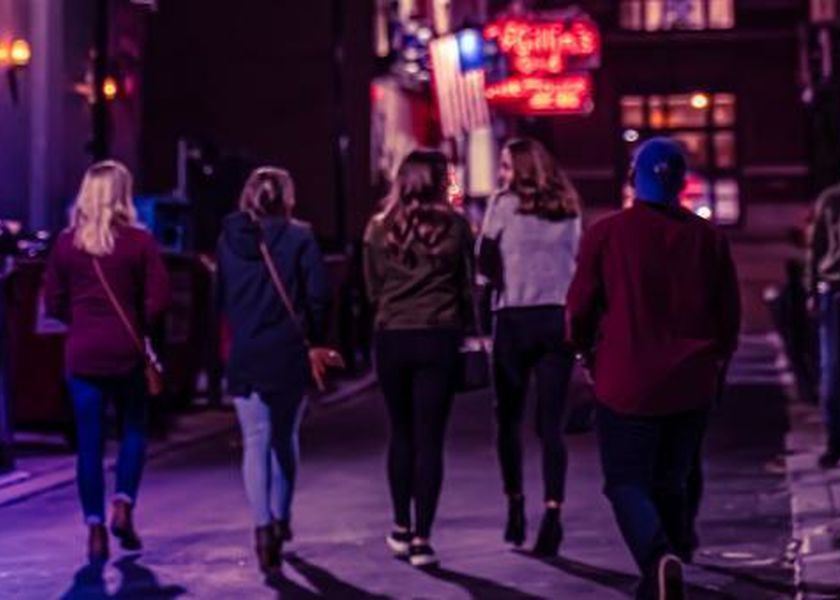Preventing nightly noise with technology and nudging

In this living lab project we used soundsensors, on-edge sound classification and realtime actuation to diminish nightly noise caused by people in the streets leading in and out the nightlife centre of Leuven.
Leuven is a student city and with more than 65.000 students on a population of 100.000 inhabitants there is a vibrant and busy nightlife scene. This nightlife centre is located in the heart of the city and causes night noise when party-go’ers go home from a night of party’ing. Noise and night noise causes a wide variety of health issues and has an impact on the relation and co-existence between inhabitants and students. This problem is hard to enforce so we wanted to prevent the noise as it was happening. Enter smart city technology and solutions.
With soundsensors and on-edge AI classification of noise sources Leuven gained insight in night noise in a pilot street. This data was then fed into the smart city dataplatform so realtime logic could be applied on the datastream. An algoritm was used to actuated solutions and nudges in realtime so we could, with the same data, diminish the noise as it happened. Leuven used animations projected on the street, dimmed and intensified the public lights and tested with more traditional campaigning techniques. With the data we also developed a Proof of Concept predictive model on night noise in the city. The living lab set-up showed that well-designed animations on the street could diminish the unintentional night noise caused by party-go’ers by up to 30%. Leuven is now looking to upscale the solutions to other streets and further experimenting with behavioral design.
The project was a combination of smart city technology solutions like IoT, AI, actuation and data engineering and innovative behavioral solutions like nudging and actuating the surroundings. The project combined many city services like smart city, prevention, environmental, public light services and police but it was also a cooperation within the quadruple helix of the city. On the business side we worked together with sound and tech firms, a behavioral influencing agency, a Leuven AI start-up, a public light manufacturer and our smart city dataplatform provider. We also involved the KU Leuven (University) for testing, advice and research and worked together with the inhabitants of the street and with students and student organisations. The project was funded by Flanders Innovation & Entrepreneurship.
We finished second in the Nudge of the Year Election of the Behaviour Club with this project and the smart city dataplatform we used for this project won the Enabling Technologies Award at the Smart City Expo World Congress in Barcelona in 2022.
Your cookie preferences
We use cookies and similar methods to recognize visitors and remember their preferences. To learn more about these methods, including how to disable them, view our cookie policy.


